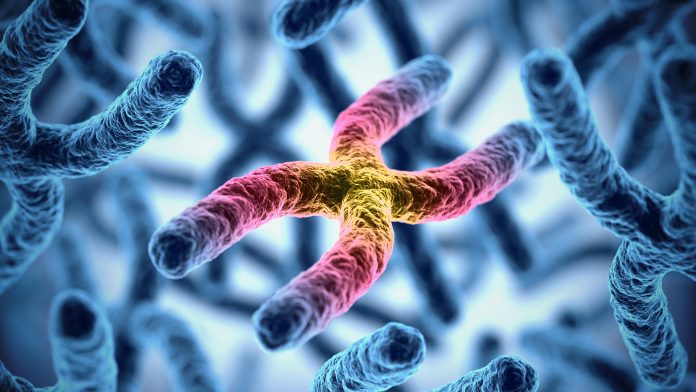
New evidence suggests that around one in 500 men could be carrying an extra sex chromosome that increases their risk of a range of diseases.
Performed by researchers at the University of Cambridge and the University of Exeter, the novel investigation revealed that millions of men could contain an additional X or Y chromosome that would increase their likelihood of diseases such as type 2 diabetes, thrombosis, and atherosclerosis.
The researchers utilised data from the UK Biobank to conduct their investigation, which is a biomedical database and research resource containing anonymised genetic, lifestyle and health information of half a million UK residents. The team analysed data from more than 200,000 men aged between 40 and 70, identifying 356 individuals who had either an extra X or Y sex chromosome.
The study was funded by the Medical Research Council and was published in Genetics in Medicine.
The role of sex chromosomes
Our biological sex is determined by sex chromosomes, with men usually having one X and one Y sex chromosome and women having two X chromosomes. Nevertheless, some men also have an extra X or Y chromosome, either XXY or XYY.
However, what combination of sex chromosomes men have may not be obvious without a genetic test. For example, some men with an extra X chromosome experience delayed puberty and infertility, although most are unaware they have these conditions. Moreover, men with additional Y chromosomes tend to be taller but have no other distinct physical features.
In their study, the team identified 213 men with an extra X chromosome and 143 men with an extra Y chromosome. Individuals taking part in the UK Biobank study are typically ‘healthier’ than the general population, meaning that around one in 500 men could be carrying an extra sex chromosome. Only a small proportion of these men were diagnosed with an abnormality of a sex chromosome, with only 23% with XXY and only 0.7% of the XYY men having a diagnosis.
Elevating disease risk
The researchers linked the participants’ genetic data to health records, discovering that men with XXY have an increased risk of reproductive problems, such as a three-fold higher risk of delayed puberty and a four-fold higher risk of being childless. Additionally, these men had considerably lower blood concentrations of testosterone, whereas men with XYY had a normal reproductive function.
Individuals with either additional chromosome were found to have an increased risk of a range of conditions, such as being three times more likely to have type 2 diabetes, six times more likely to develop venous thrombosis, three times as likely to experience pulmonary embolism, and four times more likely to have a chronic obstructive pulmonary disease (COPD).
The team explained that they currently could not clarify why an extra sex chromosome increases the risk of disease or why the risk was similar irrespective of which chromosome was duplicated. Furthermore, prior studies suggest that around one in 1,000 women have an additional X chromosome, which can cause delayed language development, accelerated growth until puberty, and lower IQ levels than average.
Yajie Zhao, a PhD student at the Medical Research Council (MRC) Epidemiology Unit at the University of Cambridge, the study’s first author, said: “Even though a significant number of men carry an extra sex chromosome, very few of them are likely to be aware of this. This extra chromosome means that they have substantially higher risks of a number of common metabolic, vascular, and respiratory diseases – diseases that may be preventable.”
Professor Ken Ong, also from the MRC Epidemiology Unit at Cambridge and joint senior author, added: “Genetic testing can detect chromosomal abnormalities fairly easily, so it might be helpful if XXY and XYY were more widely tested for in men who present to their doctor with a relevant health concern.
“We’d need more research to assess whether there is additional value in wider screening for unusual chromosomes in the general population, but this could potentially lead to early interventions to help them avoid the related diseases.”
Professor Anna Murray at the University of Exeter concluded: “Our study is important because it starts from the genetics and tells us about the potential health impacts of having an extra sex chromosome in an older population, without being biased by only testing men with certain features as has often been done in the past.”






















